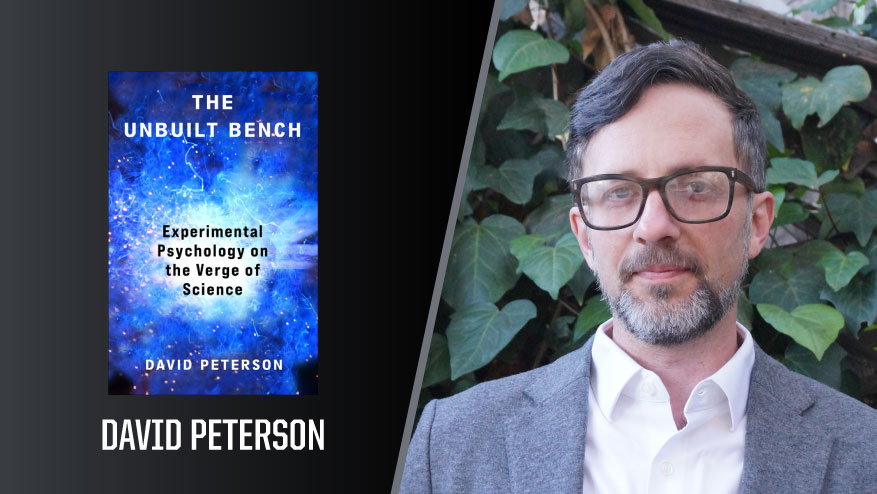Featured Publication: The Unbuilt Bench

Publication Title
The Unbuilt Bench: Experimental Psychology on the Verge of Science
Author
Publisher
Columbia University Press
Publication Date
April 2025
About the Book (from the publisher)
Psychological experts are omnipresent across public and private spheres. Nonetheless, psychology has always been dogged by questions about its authority and validity. Psychological research has yielded relatively few unambiguous successes, and the widely publicized “replication crisis” has called much of the published literature into question. How closely akin to other experimental sciences is psychology, and should its findings be assessed by the same standards? What makes psychology distinct, and how do such differences affect understandings of the boundaries of science?
In The Unbuilt Bench, David Peterson argues that the scientific study of the mind and human behavior is a different sort of epistemic activity than the work of the natural sciences. Through fieldwork in ten experimental psychology laboratories and, as a comparison, a molecular biology lab, he explores the concrete practices of experimentation. Ongoing improvement of research practice and technology at the frontiers of data collection, a process Peterson calls “bench-building,” is essential to most sciences, since it opens new possibilities for experimentation. Psychology labs, however, largely lack an emphasis on bench-building. Instead, the discipline and its subfields gravitate toward different dimensions of scientific progress that focus on theory building and cultivation of outside audiences. An empirically rich and theoretically sophisticated exploration of experimental psychology and scientific practice, The Unbuilt Bench also offers new insight into the ethical questions that psychology’s aims raise.
About the Author
David Peterson received his PhD from Northwestern University and was a postdoc at UCLA before joining the sociology department at Purdue. He studies the nexus of scientific practice, emerging technologies, and expert authority. Currently, his work focuses on two topics. First, he studies how the organizations of science are evolving to meet a variety of threats including political pressure, intensifying global competition, new communications and machine learning technologies, and emerging regulatory and managerial bodies. Second, he investigates the production of science in areas that have had chronic legitimacy problems (like the social sciences) to shed light on the complex interactions between politics, expertise, and authority.